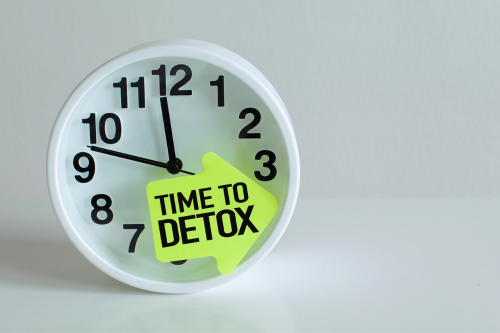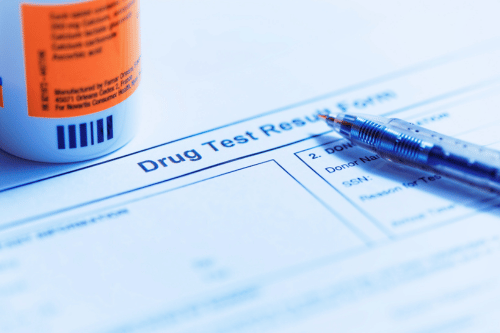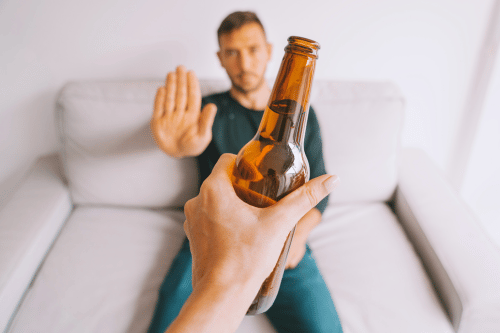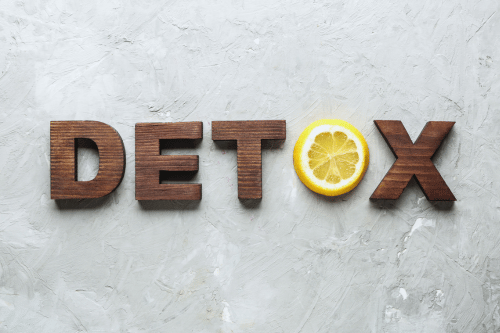

How long does it take to detox from drugs? This question comes up often from people dealing with substance use disorder or supporting someone through it. The answer depends on several factors like the type of drugs, the duration of use, and a person’s medical history.
Drug detox is the initial phase of addiction treatment. The detoxification process clears harmful substances from the body to reduce physical dependence and prepare the brain for recovery. It helps stabilize vital functions while managing early symptoms of withdrawal.
Detox is not the same for everyone. The detox process varies based on physical health, substance use patterns, and whether professional care is used. Some may experience only mild discomfort, while others require medical intervention for severe symptoms. Sullivan Recovery offers outpatient detox programs supervised by medical professionals for those seeking flexible yet effective care in Orange County.

The detox period depends on multiple factors. The type of drugs used, frequency, and severity of addiction all matter. Long-term use or mixing multiple substances can extend the withdrawal period and increase the risk of complications.
A person’s age, weight, and underlying medical conditions can also affect how long detox lasts. Mental health conditions and past trauma may influence psychological symptoms during withdrawal. Those with severe addictions or co-occurring conditions may need a longer detox period. Medical professionals assess these factors before starting any detox program to reduce the risk of severe withdrawal symptoms and ensure a safe detox timeline.
Detox timelines differ by drug. Here’s a general idea of how long withdrawal symptoms may last:
The first signs of withdrawal are often physical. Initial symptoms include sweating, nausea, runny nose, and frequent yawning. These symptoms appear within hours of stopping the drug and signal the body’s reaction to the absence of the harmful substance.
Some withdrawal symptoms can worsen quickly. Painful withdrawal symptoms like body aches, chills, shaking, and restlessness may begin during this initial phase. People may also experience irritability or anxiety as part of early psychological symptoms. Medical intervention may be required to reduce discomfort and avoid complications, especially in cases of alcohol withdrawal or opioid detox.

Withdrawal comes with both physical and mental symptoms. Physical withdrawal symptoms may include vomiting, diarrhea, chills, and headaches. Psychological symptoms often include anxiety, irritability, and depression.
In severe withdrawals, dangerous withdrawal symptoms like hallucinations or seizures may occur. These cases often require medical detox under the care of mental health professionals and a trained medical team.
The severity of withdrawal symptoms depends on the type of drug, how long it was used, and the dosage. Individuals with a long history of drug abuse face more severe symptoms. Those using multiple substances may also experience intense withdrawal symptoms.
Alcohol withdrawal symptoms can become life-threatening if not treated properly. Severe symptoms like delirium tremens require immediate medical care. That’s why a medically-supervised detox is recommended for people at high risk.
Medical detox is safer and more effective than detoxing at home. Medical professionals monitor vital signs and manage severe withdrawal symptoms. They may use medication-assisted treatment to reduce drug cravings and stabilize the body.
At-home detox carries a higher risk of complications. Without professional care, symptoms can escalate quickly. Outpatient detox programs at Sullivan Recovery allow clients to stay safe while living at home, with ongoing medical support.
A detox program offers structured care during the withdrawal process. Programs range from inpatient detox to outpatient detox, each designed to address different levels of medical and emotional support. Both aim to reduce the severity of withdrawal symptoms and improve safety during the detox period.
Inpatient detox provides 24/7 care in a rehab facility. This setting is best for individuals with severe withdrawal symptoms, a history of relapse, or co-occurring mental health conditions. Outpatient options offer flexibility with regular check-ins, ideal for those with stable living environments and less severe symptoms. Both programs help clients manage the detox time while preparing for substance use treatment and the longer recovery process that follows

A person’s medical history plays a key role in the detox process. Conditions like diabetes, high blood pressure, or mental illness can complicate withdrawal. Medical professionals must evaluate these factors to avoid health risks.
Those with complex medical backgrounds may need a longer withdrawal period. A customized detox timeline improves safety and increases the chance of a successful recovery.
Intense drug cravings are common during detox. They can be physical or psychological and often peak during the early withdrawal period. These cravings are a major trigger for relapse if not properly managed.
Medication-assisted treatment helps reduce cravings and improve comfort. Medications may target opioid receptors, reduce anxiety, or ease physical symptoms. Behavioral therapies also help address the mental side of cravings and build coping skills.
Sullivan Recovery uses evidence-based methods to manage intense withdrawal symptoms and cravings. Our treatment center in Mission Viejo ensures every client gets the support needed for lasting sobriety through a combination of medical care, counseling, and ongoing monitoring during the detox process.
The risk of relapse is highest during the early days of detox. Cravings, painful symptoms, and mental distress can overwhelm a person. That’s why medical supervision is critical during this stage.
Support from mental health professionals, counselors, and a medical team improves outcomes. Detox centers like Sullivan Recovery offer structure and safety, lowering the chance of relapse.
The detoxification process is not a cure for addiction. Detox removes harmful substance buildup but doesn’t treat the root cause of substance use disorder. Long-term recovery requires therapy, support groups, and continued care.
After detox, many clients transition to an outpatient or inpatient program. Sullivan Recovery offers both options to meet individual needs and maintain progress through every period of time in recovery.
If you or someone you know struggles with drug addiction, don’t wait. Early intervention improves outcomes and helps prevent severe withdrawal symptoms or long-term damage. Medical professionals can guide you through detox safely and create a plan for sustained recovery.
Look for signs like withdrawal symptoms, intense cravings, mood swings, or a decline in physical health. Sudden weight loss, frequent illness, or changes in behavior may also signal physical dependence. These are indicators that medical care is necessary to begin the detoxification process.
Sullivan Recovery offers a path to recovery through outpatient detox and extended support services. Our treatment center provides expert care, helping individuals manage detox time and transition into long-term substance use treatment with confidence.

Located in Mission Viejo, Sullivan Recovery provides outpatient detox tailored to your needs. Our programs treat both the physical symptoms and psychological symptoms of addiction. We specialize in treating alcohol addiction, opioid drugs, prescription painkillers, and other harmful substances.
With our medical team and mental health professionals, you receive full support during every stage of detox and recovery. We understand the detox timeline varies, so we create individualized care plans based on your medical history and severity of addiction.
The primary goal of detox is to stabilize the body and mind. It clears harmful substances from the system and reduces physical withdrawal symptoms, creating a foundation for recovery. At Sullivan Recovery, we go further by offering personalized care every step of the way.
We prepare you for long-term success with structured outpatient support. Our programs address both physical health and psychological symptoms, helping clients stay engaged through every phase of the recovery process. We also coordinate follow-up care to reduce the risk of relapse after detox.
If you’re dealing with substance abuse or drug addiction, contact our treatment center today. A successful recovery begins with the right detox program and ongoing care from medical professionals who understand your needs. Sullivan Recovery is here to support you through each stage of healing.
1. Substance Abuse and Mental Health Services Administration (SAMHSA) – Information on detox, withdrawal symptoms, and treatment programs
https://www.samhsa.gov/medication-assisted-treatment
https://www.samhsa.gov/find-help/national-helpline
https://store.samhsa.gov/sites/default/files/d7/priv/sma15-4131.pdf
2. National Institute on Drug Abuse (NIDA) – Data on drug withdrawal timelines, detox methods, and treatment guidance
https://nida.nih.gov/publications/drugfacts/treatment-approaches-drug-addiction
https://nida.nih.gov/research-topics/treatment-research
https://nida.nih.gov/publications/principles-drug-addiction-treatment-research-based-guide-third-edition
3. National Institutes of Health (NIH) – Medical perspective on substance use disorder, symptoms of withdrawal, and detox duration
https://www.ncbi.nlm.nih.gov/books/NBK310652/
https://medlineplus.gov/druguseandaddiction.html
4. American Society of Addiction Medicine (ASAM) – Detox guidelines and levels of care for addiction treatment
https://www.asam.org/quality-care/clinical-guidelines
At Sullivan Recovery, as an in-network provider we work with most insurance plans, such as:
And More
If you or a loved one are struggling with mental health challenges or substance abuse, reach out to Sullivan Recovery today. Our team of compassionate professionals is here to support your journey towards lasting well-being. Give us a call at 949-836-7180.
While staying hydrated, eating balanced meals, and getting rest can support your body, these steps won’t significantly speed up detox. Detox timelines are largely determined by drug type, duration of use, and individual health. Attempting to rush detox without medical supervision can be dangerous.
No, detox and rehab are different stages of addiction treatment. Detox focuses on clearing substances from the body and managing withdrawal symptoms. Rehab, or substance use treatment, begins after detox and addresses the psychological, emotional, and behavioral aspects of addiction.
You may need inpatient detox if you have a history of severe withdrawal symptoms, co-occurring medical or mental health conditions, or no stable home environment. A healthcare provider can assess your medical history and substance use to recommend the safest setting.
Yes, some symptoms—especially psychological symptoms like anxiety, insomnia, or drug cravings—can persist after the physical detox period. This is known as post-acute withdrawal syndrome (PAWS), and ongoing treatment helps manage these lingering effects.